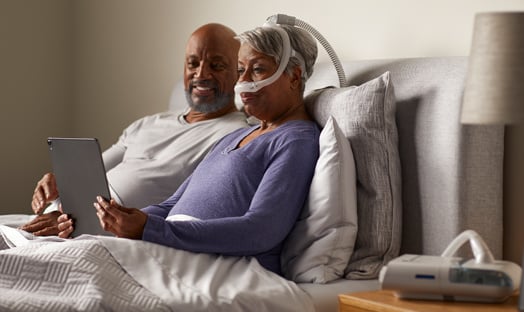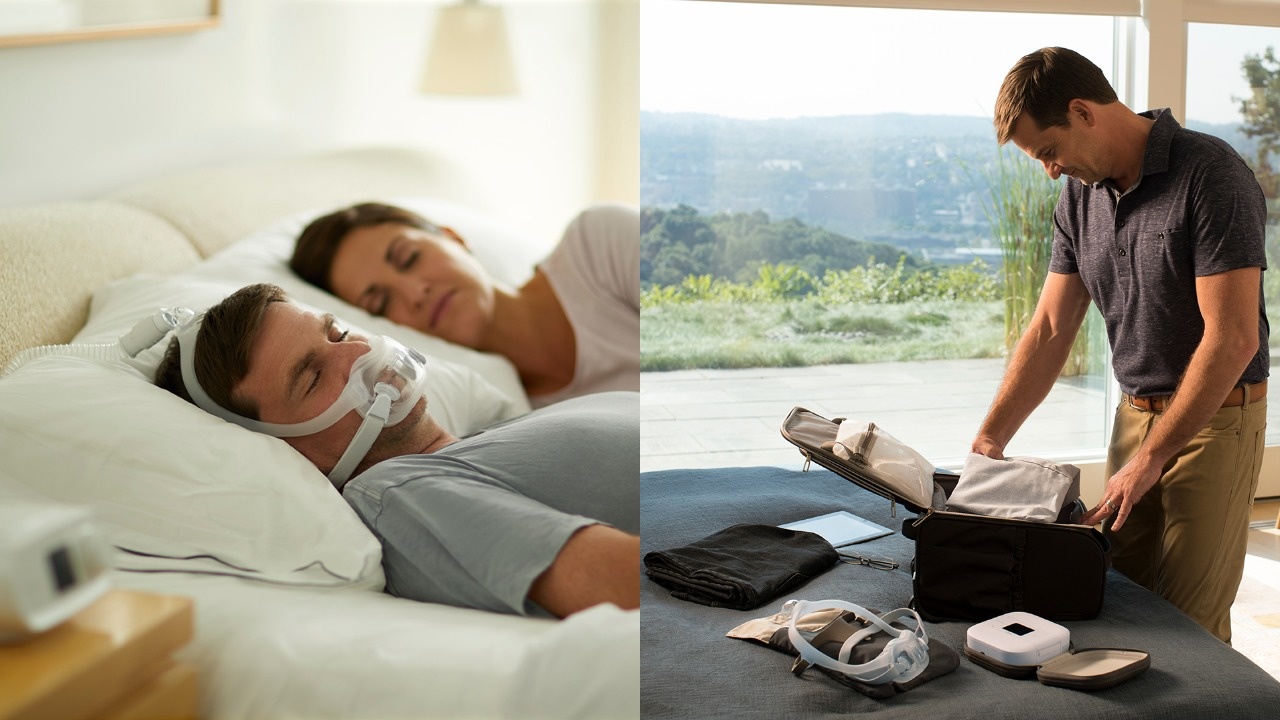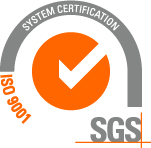Treating sleep apnea with CPAP therapy
- Posted on
- By Oxigo
- 0

Everything about CPAP therapy.
Once sleep apnea has been officially diagnosed, treatment can begin. For most people who suffer from apnea, CPAP therapy is recommended to treat its symptoms. A good night’s sleep, waking up refreshed and having more energy during the day is the main goal of CPAP therapy. Read more in this blog post!
Most common sleep apnea symptoms
Many people suffer from sleep apnea without even knowing it. So let's have a look at the most important sleep apnea symptoms:
- Loud frequent snoring and long breathing stops (apnea)
- Restless sleep
- Fatigue and irritability during the day
- Waking up tired
- Lack of concentration
In many cases, it’s not the patient but the bed partner who notices that something is wrong. It’s true that sleep apnea affects both the patient and the partner. Unfortunately, this can cause stress and tension in a relationship. Breathing problems during sleep have a negative impact on your health, in the short term and in the long term. For example, someone with untreated sleep apnea is at an increased risk of developing high blood pressure, a cardiac arrest, a cerebral infarction or diabetes.
Treating sleep apnea: possible treatments
First of all, it’s important to see your GP if you suspect sleep apnea. He will probably refer you to a sleep clinic for a sleep study. Once you are diagnosed, you can start your treatment. Mild sleep apnea can often be treated with a sleep position trainer, a mandibular repositioning device (MRD) or patches that fit in your nostril. The most common therapy for sleep apnea is CPAP therapy, a form of sleep therapy. This is an effective method for treating sleep apnea and its symptoms, and to get back to your life without sleeping problems. The machine must be set to the correct therapy pressure. A sleep specialist will probably help you with that, so that you won’t have to find it out yourself.
What is Obstructive Sleep Apnea (OSA)? (source: Philips)
Sleep Apnea – Starting therapy (source: Philips)
CPAP therapy for obstructive sleep apnea
In people with OSA (Obstructive Sleep Apnea), breathing stops frequently during sleep. As a consequence, the oxygen saturation drops. The patient breathes again when the brain warns the body. In severe OSA, breathing stops can occur up to 50 times an hour. A sleep apnea treatment with CPAP therapy helps the upper airways to remain open. CPAP is an abbreviation for Continuous Positive Airway Pressure. A CPAP machine blows air into the nose through the hose and the mask. Positive airway pressure is created in the nose and throat, and the upper airway is stabilized. Breathing problems during sleep are now a thing of the past.
What are the benefits of using a CPAP machine?
Most CPAP users are delighted by the results of the therapy. A positive effect is often noticeable after one night’s rest. Of course, you’ll have to get used to the idea of wearing a CPAP mask that’s connected to a machine with a hose. CPAP therapy will become part of your life. The quality of life also improves considerably. You’ll wake up with more energy and will do more activities during the day. CPAP therapy thus has a positive effect on your life and the life of your loved ones.
CPAP therapy at home…
In principle you can use your sleep apnea machine at home, every night. Simply place it on your bedside table, because the machine and accessories take up little space! Put on your mask, press the on/off button and you’re ready for a comfortable night’s sleep.

…and on vacation
You can also use your device on vacation, since most devices are easy to travel with. Also, there are travel CPAP devices that are very lightweight and compact. Easy to use when you’re on a campsite, in a hotel or on a boat. Are you going to fly? Please contact your airline and ask for their conditions. Most CPAP devices are FAA approved, so that you can take them with you on a plane. If you don’t have access to mains power, you’ll probably need a CPAP battery.
“CPAP therapy has a positive effect on your life and the life of your loved ones.”
Important points
Although CPAP therapy offers a lot of benefits, there are 3 possible obstacles:
- Comfort: some users suffer from a dry nose. The use of a humidifier is then recommended. In addition, it’s very important to choose a suitable CPAP mask. The specific type of mask (one with a pad over or under the nose, one with gel pillows or one that covers both the nose and the mouth) and the size are very important to prevent air leaks.
- Relationship: CPAP therapy can be a delicate topic in relationships, even though in most cases the partner accepts the situation. If left untreated, sleep apnea may cause decreased libido and the partner’s night’s sleep is disturbed by the snoring sounds. Although wearing a CPAP mask may not look very attractive, this sleep apnea treatment does offer an efficient solution against snoring and breathing stops. The libido increases simultaneously. Put the new things in your life in perspective (together with your partner) and focus on the positive.
- Travelling: going on vacation can be quite stressful for some CPAP users. Will I sleep well on my holiday destination? Will I need my CPAP or not? Fortunately, using your device on vacation is easy and even recommended when you use one at home. No stress.
What are the side effects?
CPAP users may experience one or more side effects, such as: irritated eyes, a swollen feeling in the abdomen, flatulence, irritation where the mask touches your face, and a dry mouth or throat. Another pressure of the machine, another mask or using a humidifier can reduce these side effects. Avoid alcoholic drinks and sleeping pills if possible.
Always contact your doctor if you have problems sleeping or if you have doubts about your health.
Further reading:
- Website NHS – Sleep apnoea
- Blog post "How sleep apnea affects everyday life"
- Blog post "How to clean your CPAP accessories"
- Information on sleep therapy



Comments
Be the first to comment...